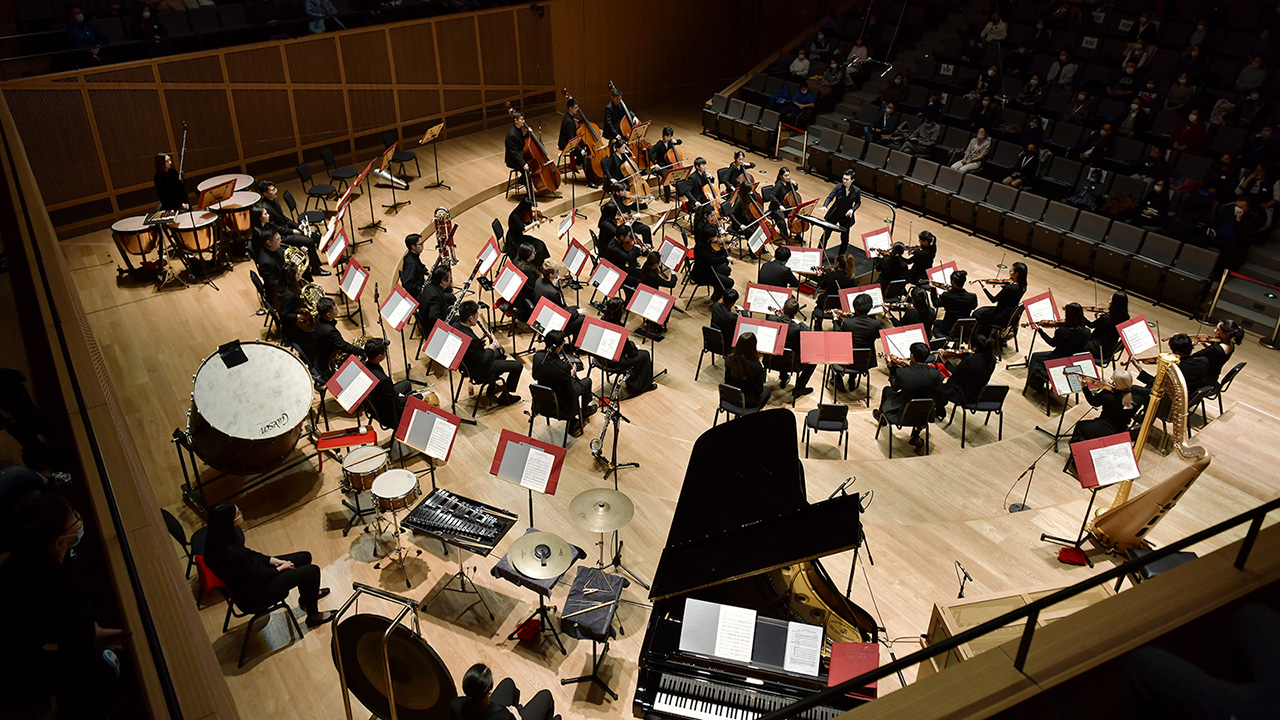In 2005, the longtime President of Juilliard published a collection of speeches extolling his belief in the responsibilities of the artist as a citizen. The principle was one students at the elite conservatory lived first-hand over Joseph W. Polisi’s 35-year tenure: dormitories were built to create community out of commuters, curricula redesigned to produce well-rounded graduates, engagement programs launched to catapult budding artists into local hospitals.
The grandest manifestation of Polisi’s educational vision, however, rests not in Manhattan, but halfway around the world in Tianjin, the port city an hour east of Beijing where Juilliard welcomed the inaugural class to its branch campus in Fall 2020. The stunning 350,000-square-foot complex comprising four pavilions interlaced with glass bridges is a realization of Polisi’s efforts to broaden Juilliard’s reach, impact, and endowment coffers — a mission he continues to oversee from afar as Chief China Officer.
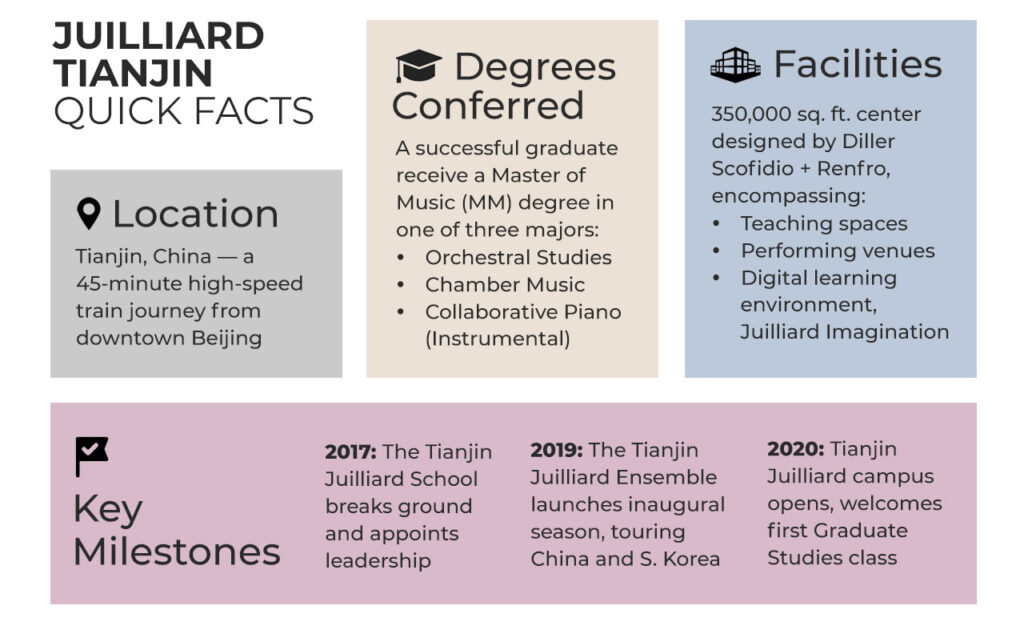
Partnerships, as with any venture in China, are essential and since first announcing the project in 2015 — one prompting the inevitable backlash of a century-old institution embarking on something big and new — Juilliard has waded into fresh territory, and through government regulations, alongside the Tianjin Conservatory of Music. Strong local partnerships are to thank for the smooth beginnings the school is enjoying amid the turbulence of COVID-19, a point best symbolized by Juilliard being the only school in China to enroll international students at a time of stringent border restrictions.
As its North American counterpart adapted to pandemic-induced learning realities for the new academic calendar, Tianjin offered “the authentic Juilliard experience,” as Executive Director Alex Brose put it, namely: in-person classes, face-to-face instruction, and live performances with, yes, physically present audiences in its 690-seat concert hall.
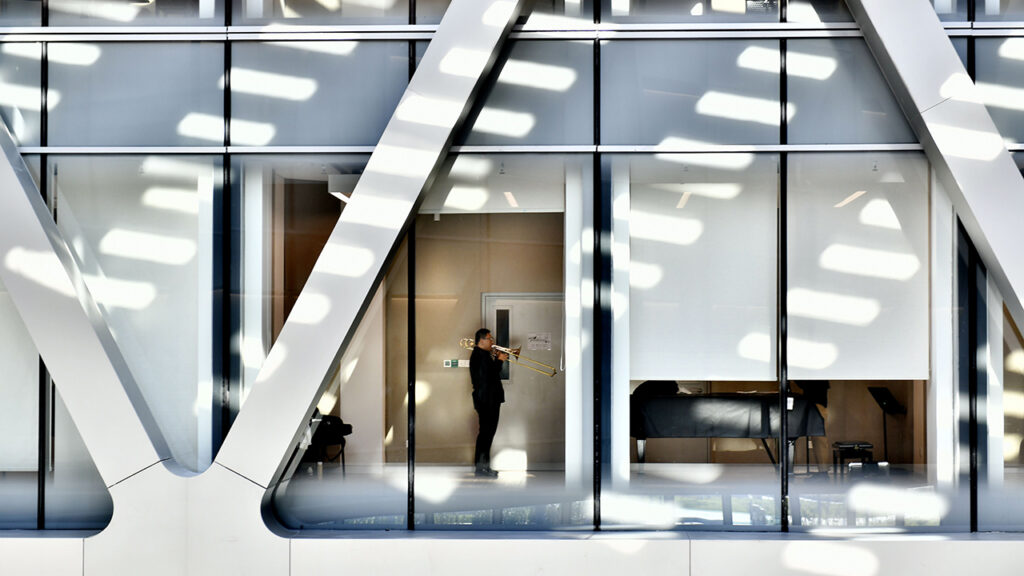
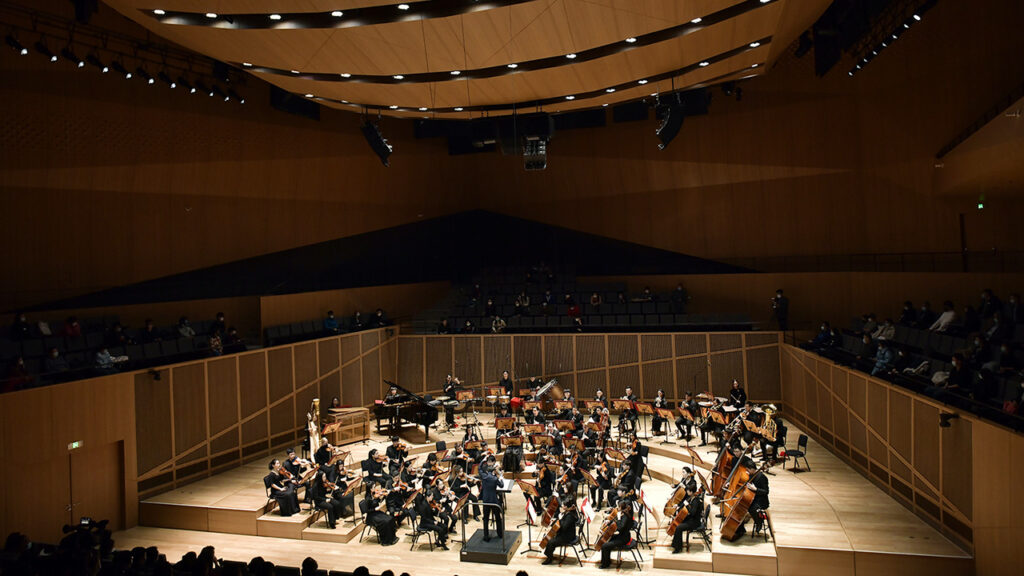
Above: Student in the practice room on the floating bridge. Image: Duan Chao. Below: Festival Connect concert at the Tianjin Juilliard Concert Hall. Image: Shengyi Visual
Despite being 7,000 miles apart, drawing from largely distinct student pools, and operating in starkly different cultural contexts, this consistency of experience is essential to the promise Juilliard is making in China. Applicants face near-identical admission requirements and students undergo the same rigorous curricula, taught in English, before graduating with a U.S.-accredited Master of Music degree.
“We want the Tianjin Juilliard School to be synonymous with excellence and for our programs to serve as an attractive option for students, families, and audiences,” says Brose via email. “We want our master’s degree recipients to find positions in the world’s best orchestras, chamber groups, and opera halls, and to train musical citizens who leave with the distinct ability to communicate.”
This final point Brose admits will require some tinkering with the majority of students being non-native English speakers (the first class is 61 percent Chinese, 39 percent international). To prepare them both immediately for class and for careers in English-speaking orchestras and ensembles, faculty have designed a curriculum called “English for Musical Purposes.”
With annual tuition for Chinese students exceeding $30,000 and plans afoot to expand offerings to weekend courses for pre-college musicians and adult learners, some will doubtless see Juilliard’s arrival in China as a bold maneuver to capitalize on a booming middle class. Such cynicism shouldn’t detract from the real possibility of America’s foremost performing arts institution building bridges through culture. After four years of hawkish economic policy and xenophobic rhetoric emanating from the White House, the need for U.S. cultural ambassadors in China has perhaps never been greater.
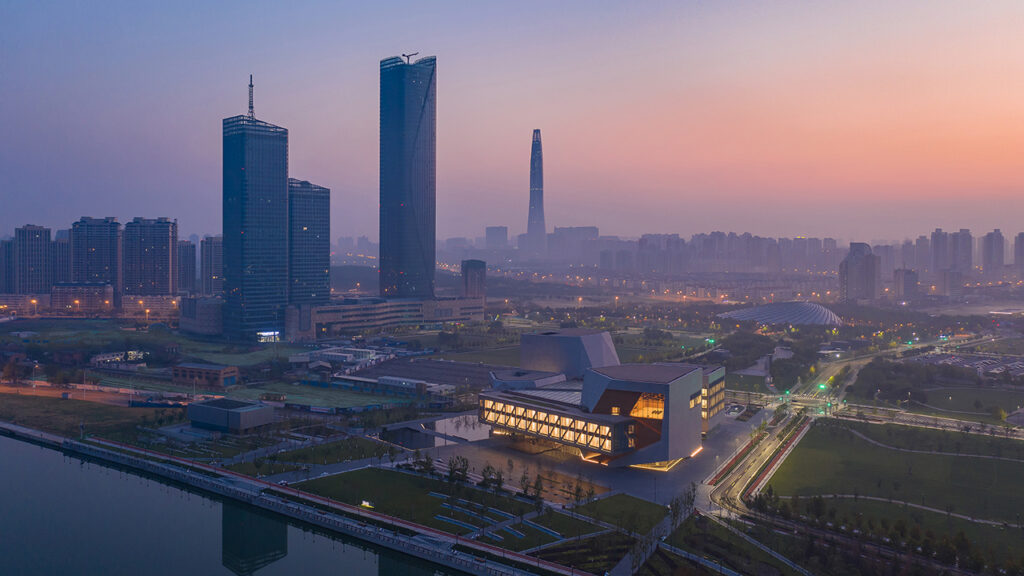
The Tianjin Juilliard campus, located in the city’s Binhai district. Photo credit: Zhang Chao
Not that Tianjin Juilliard puts its educational and community programming in such terms, but the potential for cross-cultural connections is self-evident. Internally, dancers and actors from New York will be given opportunities to perform alongside their musical peers in China. Externally, it hopes to send out students and faculty to peer conservatories and orchestras across China, and beyond, once the pandemic ends.
And then there’s local partnerships. “We seem to be approached by a different organization seeking partnership every week,” says Brose. “Relationships are key for the school as it continues to develop as a cultural anchor in Tianjin.”
So far, plans include offering a dual-degree with the aforementioned Tianjin Conservatory of Music, creating projects for students to perform alongside those from Shanghai Orchestra Academy, and developing programs alongside the local authorities that both send graduate students into local schools and welcome school children onsite for concerts and clinics.
Tianjin Juilliard’s first high-profile performance will come this May with “East Meets West,” a concert set to feature faculty, students, and friends alongside partners at the National Centre for Performing Arts in Beijing — a small step in the realm of cultural diplomacy, but a good one.

